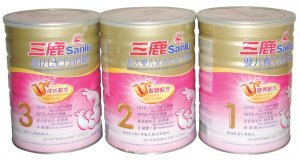He says Chinese authorities are getting their act together and working towards stringent rules similar to those in US and Europe where cowboy traders have no chance of success.
His comments come as infant formula exports to China face growing scrutiny. MPI is investigating whether proper procedures for such products are being followed. And the marketing tactics of some importers in China are causing concern for authorities and exporters here.
Morris, director of Auckland firm Coriolis, believes these issues will play themselves out. China’s fascination for branded infant formula from overseas, rather than Chinese fomula, has given rise to cowboy traders, he says.
But their success will be limited by Chinese authorities tightening regulations. “You can’t ride into town with infant formula and ride off with a bucket of money,” he told Rural News. About 30 firms export New Zealand-made infant formula; Morris predicts two-thirds of these will be out of business within five years.
Auckland supermarkets were caught last year selling baby milk formula to Chinese exporters thousands of cans at a time while rationing them to other shoppers. This bulk trade was unknown to export authorities at the time.
An MPI spokesman told Rural News it has been investigating infant formula exports to China for some time but will not comment further until the investigations are over.
A premium has attached in China to New Zealand-made dairy products since the melamine tainted-milk scandal in 2008, when six children died and nearly 1000 were hospitalised after melamine was added to formula supposedly to increase protein content.
Morris says New Zealand’s image survived the melamine scandal although it engulfed Fonterra’s Chinese operations. “The Chinese trust our infant formula and they travel to Hong Kong to buy global brands rather than Chinese brands.” This has led to an increase in some Chinese traders falsely labelling their products as ‘NZ made’.
The Infant Nutrition Council, representing most Australian and New Zealand infant formula exporters, knows of widespread concern among members. Chief executive Jan Carey says New Zealand milk and ‘Brand NZ’ are highly prized by Chinese consumers.
“The New Zealand brand is trusted and considered best quality. Some Chinese marketers will use any marketing trick to promote their ‘Brand NZ’ whether genuine or not. This is a widespread problem. The Infant Nutrition Council, the New Zealand Government and the Chinese Government are aware of this.”
Carey says it is helping in MPI’s investigation. Though infant formula trade from New Zealand is properly regulated, “some middlemen are getting around the regulations”.

















